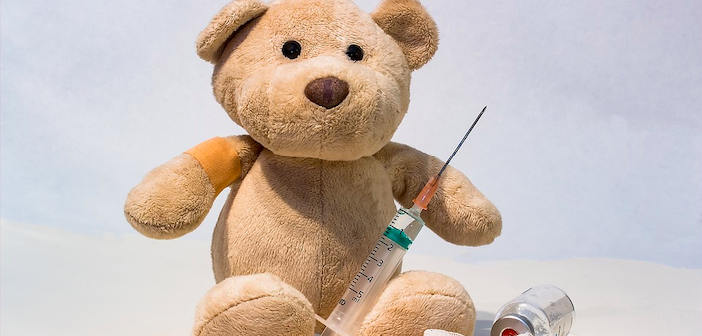The marvels of modern science have propelled humanity to unprecedented heights of health and prosperity. Among the many advancements that have allowed us to thrive are vaccinations, which all but eradicated a number of debilitating diseases that ravaged our ancestors. As a result, horrifying outbreaks of tetanus, polio, and diphtheria are a thing of the past, and we can all, quite literally, breathe easy knowing the folks around us don’t threaten to bring down society with one errant sneeze.
Unfortunately however, a few misplaced beliefs and widely debunked studies have called into question the validity and efficacy of these hard-fought battles against microbial warriors. And even for those folks who don’t consider themselves devoutly “anti-vaxxer”, the global debate surrounding vaccinations means separating fact from fiction, or skepticism from hysteria, is becoming increasingly difficult.
To help cut through the myths about vaccines, and bring a little clarity to the wonder of these lifesaving measures, we spoke with Dr. Christian T. Caligagan of Beijing United Family Health Care. Dr. Caligagan is a pediatrician and fellow of the Philippine Pediatric Society with 18 years of experience.

Dr. Christian T. Caligagan
What exactly are vaccinations and why are they important?
Vaccination or immunization is the process of giving preformed antibodies or antigens to an individual to evoke an immunologic response in order to help prevent certain diseases occurring in that individual, especially some viral infections and bacterial infections.
What is the general timeline by which children should be vaccinated? What do those vaccinations prevent?
Vaccines are given as soon as a baby is delivered. At birth, Bacillus Calmette–Guérin (BCG) and Hepatitis B are given. And throughout the child’s lifetime, other vaccines, such as diphtheria, tetanus, pertussis, H. influenza type b, and polio are given on certain schedules. For a full list of recommended childhood immunizations, consult with a pediatrician.
Do the amount of vaccinations a child gets, and the timeline by which they get them, differ in China and the West? Or is it a global standard?
The vaccines received in China do not differ much from the vaccines received in some other parts of the world, except for some differences in the timing or schedule of vaccination. The number of doses and amount of vaccine given are practically the same for all countries. Some countries may have some recommended vaccines that they routinely give to children that other countries do not.
What would you say to a parent who is worried about giving their child a “large” amount of vaccinations in one sitting?
I would tell the parents that vaccines are generally safe. Side effects and adverse reactions may happen, but they are not really worrisome. Children in other countries like the US, UK, and Australia can actually receive multiple or simultaneous injections of vaccine in one visit, which can be well tolerated.

Vaccination cost chart for Beijing United Family Healthcare
What are the risks not only for a child who isn’t vaccinated, but for the other children they come into contact with?
If children are not vaccinated, they can acquire the diseases which the vaccines prevent and they may suffer a more severe manifestation from such disease. Vaccinations offer herd immunity, so if a big population of individuals are vaccinated, other people or children who are not vaccinated may benefit from herd immunity and may be safe also from acquiring vaccine preventable diseases.
Do you know if the international schools in Beijing have vaccination requirements?
I think International schools ask during admission about the vaccination status of the student and I think they also require that vaccines be updated in children.
Vaccination “horror stories” have been largely debunked. However, are there any valid concerns that a parent might have regarding vaccinations?
Vaccines and the process of vaccination are generally safe. Some horror stories have been debunked already and the benefits of getting vaccinated definitely outweigh the potential risks or adverse reactions of the vaccination.
Photos: Pixabay, courtesy of Beijing United Family Healthcare




